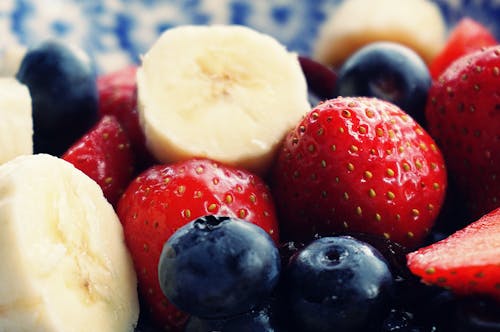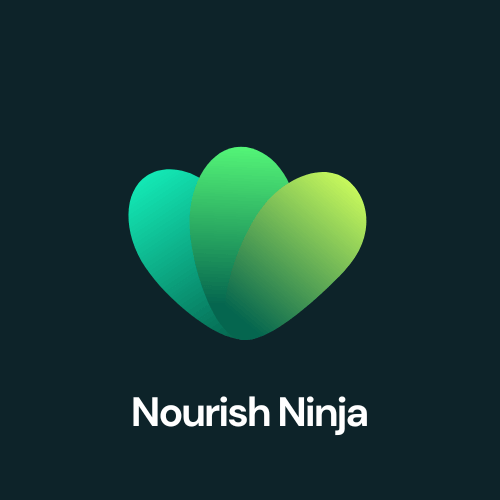Introduction
Let’s talk about vitamin K. A balanced diet is generally the first thing that comes to mind when you hear the word “health.” A healthy weight-reduction plan provides the body with the necessary amount of nutrients.

An important mineral that is usually ignored is vitamin K. Let’s explore the world of vitamin K, its benefits, its natural sources, and a lot more in this blog article. Let’s get started straight now without more delay!
What is Vitamin K?
Vitamin K is a fat-soluble vitamin that is very necessary for the technique of blood clotting and maintaining bone health. It can exist in two forms: Vitamin K1 (also called Phylloquinone) and Vitamin K2 (Also known as Menaquinone).
Vitamin K1 is found in plant-based sources. Vitamin K2 is determined in animal sources and is additionally produced by using microorganisms in your gut.
What are the benefits of Vitamin K?
Vitamin K has a full-time job in maintaining your health. Let’s delve deeper into what it does:
- Blood Clotting: One of this incredible vitamin’s main functions is to help blood clotting. It helps in the introduction of positive proteins that are vital for coagulation, stopping excessive bleeding and making wound recovery more efficient.
- Bone Health: This diet works synergistically with other vitamins like calcium and Vitamin D to promote healthful bone metabolism and bone density. It helps to spark off the proteins that regulate bone mineralization. This reduces the risk of fractures and conditions like osteoporosis.
- Cardiovascular Health: Recent research suggests that Vitamin K might also make a contribution to heart health by reducing arterial calcification and improving arterial elasticity. These outcomes might also potentially reduce the danger of cardiovascular illnesses like heart attacks and strokes. Although this hasn’t been proven, the data collected seems promising.
- Cancer Prevention: Preliminary evidence shows that Vitamin K, especially Vitamin K2, may additionally have a position in cancer prevention. Some studies have shown that there may be a link between greater degrees of Vitamin K2 and a reduced threat of positive sorts of cancer, like prostate and liver cancer. Like before, research has to be done to see if this is genuinely true.
Sources of Vitamin K
Now that you know what the benefits of Vitamin K are, you might be wondering where you can find it. Worry not, this post covers it all. Here’s a list of the things you can incorporate into your diet to get adequate levels of Vitamin K:
-
Leafy Greens: Spinach, kale, Swiss chard, collard greens, mustard greens, and turnip vegetables are truly appropriate sources of Vitamin K1. Don’t get me wrong, regardless of their horrifying names, they can in reality be delicious when cooked in the right way. For example, you can put them in salads, smoothies, stir-fries, or sauté them as a facet dish.
- Cruciferous Vegetables: Broccoli, Brussels sprouts, and cauliflower now not solely provide a giant quantity of Vitamin K, but additionally provide a buffet of many different important nutrients like fibre, antioxidants, and phytochemicals. You can enjoy them in your diet by roasting, steaming, stir-frying, or even in raw salads.
-
Herbs and spices: Herbs and spices, besides adding to your culinary creations, are remarkable sources of this vitamin. Parsley, basil, cilantro, sage, and thyme are examples of herbs that can enhance the style of your dishes and provide you with a boost of vitamins at the identical time. You can add them to your salads, soups, sauces, or homemade dressings to spice up your diet whilst also enhancing it.
- Green Tea: Here you go, another nutrient present in green tea. Yes, that is right, green tea is loaded with Vitamin K, including the reasons why you ought to change to it. You can take it in the morning or as an afternoon pick-me-up.
To obtain extra recommendations about a wholesome diet, I’d tremendously recommend you read Diet and Nutrition: Diet and Nutrition: 10 Incredible Ways to enhance your eating habits.
Vitamin K Supplements

While it is recommended that you must get all your nutrients from natural sources rather than artificial ones, there are times when we may want to take nutrient supplements. Remember that this must only be performed under the supervision of a healthcare professional. Here’s some valuable advice to guide you in such cases:
- Consult a Healthcare Professional: Before starting any dietary supplements, Vitamin K included, it’s really important to meet a healthcare professional.
- Supplement Quality and Dosage: When choosing supplements, it’s important to choose trusted brands that follow strict quality standards. You should always follow the recommended dosage provided by your medical practitioner, or the instructions written on the packaging. Always avoid overdose unless specifically told to do so by your doctor.
- Potential Interactions: Be aware that these supplements are not magic, they can react with other medications or supplements and produce side effects that can be nasty. Make sure you ensure compatibility and minimize the risk of the adverse effects caused by these interactions.
Risk Factors
Understanding the risks associated with Vitamin K deficiency and potential adverse reactions to other things you consume can help you make informed decisions about intake. Let’s explore these factors:
- Fat Malabsorption: Individuals with stipulations that impair fat absorption, such as celiac disease, Crohn’s disease, cystic fibrosis, or liver disorders, may additionally have challenges absorbing Vitamin K properly. In such cases, clinical supervision and conceivable supplementation can also be necessary.
- Antibiotics and Medications: Certain medications, including certain antibiotics or anticoagulants, can intervene with Vitamin K absorption or utilization. If you are on long-term medication, discuss your Vitamin K reputation with your healthcare issuer to make certain ample consumption and attainable adjustment of medication if needed.
- Newborns: Babies are born with low ranges of Vitamin K, and breast milk may additionally now not grant enough amounts. Therefore, newborns are often given Vitamin K injections to forestall bleeding disorders. If you have worries about Vitamin K for your newborn, consult a paediatrician for specialist advice.
Possible detrimental reactions to Vitamin K supplements: While Vitamin K is commonly viewed as protected when eaten up through meal sources, excessive doses of dietary supplements can probably purpose negative effects. These can include belly upset, diarrhoea, or interference with sure medications. It’s fundamental to comply with the recommended dosage and consult a healthcare expert if you have any concerns.
Vitamin K and Health Conditions
Vitamin K and Metabolic Health
Emerging proof suggests that Vitamin K can also play a function in metabolic health, along with glucose metabolism and insulin sensitivity. Some research has cautioned that the most beneficial Vitamin K degrees would possibly be associated with a reduced chance of developing insulin resistance and type two diabetes. However, it is necessary to work that extra research is needed to fully understand the mechanisms worried and the possible implications for metabolic disorders.
Vitamin K and Cardiovascular Health
Research has proven a possible hyperlink between Vitamin K and cardiovascular health. Vitamin K2, in particular, has been related to reduced arterial calcification and extended arterial elasticity. These results may contribute to a lower danger of cardiovascular diseases. Nevertheless, in addition, research is required to establish a definitive relationship and determine the most useful consumption of Vitamin K for cardiovascular health.
Vitamin K and Cancer Prevention
Preliminary lookup suggests that Vitamin K, in particular Vitamin K2, might also have a position in most cancer prevention. Some research has proven that higher Vitamin K2 consumption is related to a reduced danger of positive cancers, inclusive of prostate and liver cancer. However, it’s important to be aware that the reachable proof is limited, and extra lookup is critical to recognize the precise mechanisms and establish definitive recommendations.
Dosage and Precautions
Determining the dosage of Vitamin K relies upon a range of factors, which consist of age, sex, special health conditions, and the presence of any underlying illnesses or medications. Here are some typical recommendations:
Recommended Dietary Allowance for Vitamin K
- Adults (men): 120 micrograms (mcg) per day
- Adults (women): 90 mcg per day
- Pregnant women: 90 mcg per day
- Breastfeeding women: 90 mcg per day
Safety Precautions when taking Vitamin K supplements
- Always consult a healthcare professional earlier than beginning any dietary supplements, especially if you have underlying fitness conditions or are taking medications. They can supply personalized practice based totally on your person’s wishes and ensure the secure use of supplements.
- Follow the recommended dosage supplied by your healthcare professional or the directions on the complementary packaging. Avoid exceeding the recommended dosage except in particular counselled through a healthcare professional.
- Be conscious of achievable interactions with different medicinal drugs you may also be taking. Inform your healthcare professional about all the dietary supplements you are the usage of to make certain compatibility and reduce the danger of destructive outcomes or interactions.
Conclusion
Incorporating Vitamin K into your eating regimen is critical for universal fitness and well-being. By including meals wealthy in Vitamin K, such as leafy green vegetables, cruciferous vegetables, herbs, and spices, as properly as consuming green tea, you can make sure of a sufficient intake of this integral nutrient. While dietary supplements may also be critical in certain cases, it’s important to are searching for expert advice to decide the splendid dosage and think about possible risks.
Remember, a balanced and different diet, alongside a healthful lifestyle, is the key to acquiring all the quintessential nutrients for the most advantageous health. So let’s enjoy a plate full of leafy greens, have fun with the flavours of clean herbs, and sip on a cup of green tea. By incorporating these wonderful herbal sources of Vitamin K into your diet, you’re taking a proactive step toward helping your health and well-being.

